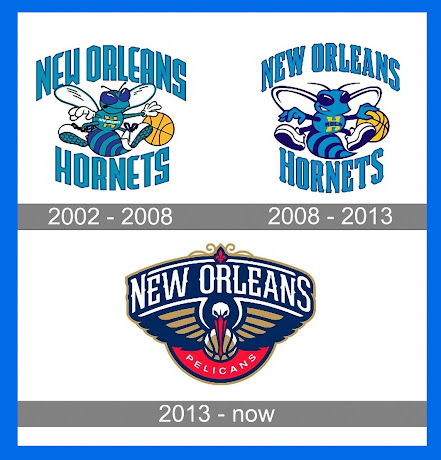
Photo Credit:
Basketball in New Orleans
New Orleans had been a founding member of the ABA with the New Orleans Buccaneers (1967 – 1970), but the lack of a dedicated arena and a poor performance record led the team to relocate to Memphis. The city acquired an NBA expansion franchise in June 1974: the New Orleans Jazz (as a tribute to New Orleans’ history of originating jazz music). The team faced a number of the same logistical and financial woes and relocated to Salt Lake City in 1979 – 80. One of the few bright spots during the Jazz’s tenure in New Orleans was the acquisition of “Pistol” Pete Maravich (who had played basketball at LSU). Although he was considered one of the most entertaining players in the league and won the scoring championship for the 1976 – 77 season with 31.1 points per game, the Jazz’s best record while in New Orleans was 39 – 43 in the 1977 – 78 season.
In 1994, the Minnesota Timberwolves suffered financially; an ownership group almost purchased the team and moved it to New Orleans. The Timberwolves would have played at the Louisiana Superdome until a new arena was constructed. Financial problems, however, led to the NBA blocking the move. New Orleans would attempt to chase the Vancouver Grizzlies before landing another team in 2002.
2002 - 2005: The relocation and
early years in New Orleans
early years in New Orleans
While the Charlotte Hornets put a competitive team on the court throughout the 1990s, the team’s attendance began falling dramatically. Many attributed this lapse in popularity to the team’s owner, George Shinn, who was slowly becoming despised by the people of the city(1). In 1997, a Charlotte woman claimed that Shinn raped her, and the resulting trial severely tarnished his reputation in the city. The consensus was that while Charlotte was a basketball city, fans took out their anger at Shinn on the team. Shinn had also become discontented with the Charlotte Coliseum, which had been considered state-of-the-art when it opened but had since been considered obsolete due to a limited number of luxury boxes. On March 26th, 2001, both the Hornets and the Vancouver Grizzlies applied for relocation to Memphis, Tennessee(2), which was ultimately won by the Grizzlies. Shinn then issued an ultimatum that unless the city built a new arena at no cost to him, the Hornets would leave town. The city initially refused, leading Shinn to consider moving the team to either Norfolk, Louisville, or St. Louis. Of the cities in the running, only St. Louis had an NBA-ready arena, the Savvis Center, already in place and was a larger media market than Charlotte at the time; also, it was the only one of the four to have previously hosted an NBA franchise – the St. Louis Hawks, who moved to Atlanta in 1968.
Finally, a new arena in Uptown, which would eventually become the Spectrum Center, was included in a non-binding referendum for a larger arts-related package, and Shinn withdrew his application to move the team. Polls showed the referendum on its way to passage. However, just days before the referendum, Mayor Pat McCrory vetoed a living wage ordinance. The veto prompted many of the city’s African American ministers to oppose the referendum; they felt it was immoral for the city to build a new arena when city employees were not paid enough to make a living(3). After the referendum failed, city leaders devised a plan to build a new arena that did not require voter support but made it known that they would not even consider building it unless Shinn sold the team. While even the NBA acknowledged that Shinn had alienated fans, league officials felt such a demand would anger other owners as it could set a precedent(4). The city council refused to remove the statement, leading the Hornets to request a move to New Orleans – a move which would eventually return the NBA to that city for the first time since the Jazz moved to Salt Lake City in 1979. Before the Hornets were eliminated from the playoffs, the NBA approved the move. As part of a deal, the NBA promised that Charlotte would get a new team, which took the court two years later as the Charlotte Bobcats.
In a 2008 interview with The Charlotte Observer, Shinn, who has not returned to Charlotte since the Hornets moved, admitted the “bad judgment I made in my life” played a role in the Hornets’ departure. He also said that if he had to do it all over again, he would not have withdrawn from the public after the sexual assault trial. Shinn emphasized how he was making amend by committing to New Orleans saying, “I’ve made enough mistakes in my life. I’m not going to make one here. This city needs us here. We’re going to make this (New Orleans) thing work.”(15)
The Hornets opened their inaugural season in New Orleans on October 30th, 2002, against New Orleans’ original franchise, the Utah Jazz. In the first regular season NBA game played in New Orleans in over 17 years(6), the Hornets defeated the Jazz 100 – 75, and posthumously retired #7 of “Pistol” Pete Maravich during halftime. The Hornets finished the season with a 47 – 35 record but were defeated by the Philadelphia 76ers in the First Round of the 2003 playoffs. Following the season, the team unexpectedly fired head Paul Silas and replaced him with Tim Floyd. The Hornets began the 2003 – 04 season strong with a 17 – 7 start but sputtered at the end and finished 41 – 41. They lost to the Miami Heat in the First Round of the 2004 playoffs. After the season, Floyd was fired and the team hired Byron Scott as its new head coach.
During the first two seasons in New Orleans, the Hornets competed in the NBA’s Eastern Conference. The 2004 – 05 season saw the team move to the Western Conference’s Southwest Division to even the number of teams in each conference after the Charlotte Bobcats started play in their inaugural season of that same year. In a season marred by injuries to the team’s three all-stars, the team finished the year with a franchise-worst record of 18 – 64.
“Pistol” Pete Maravich
Photo Credit:

